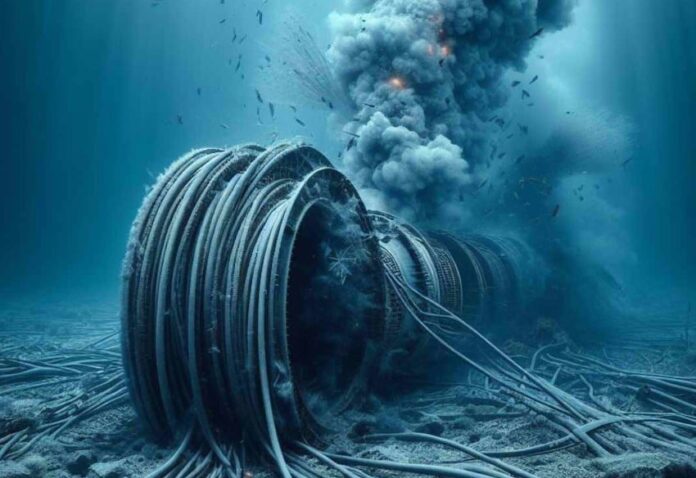Finland’s intelligence chief, Juha Martelius, sounded the alarm on March 04, 2025, over a series of “exceptional” damages to underwater cables in the Baltic Sea, though he cautioned that an even greater security concern looms: Russia’s shadowy fleet operations. Speaking amid heightened tensions, Martelius highlighted the weekly passage of dozens of Russian vessels through the Gulf of Finland, skirting international sanctions to bolster Moscow’s war economy.
While the cable incidents—suspected to involve sabotage—have disrupted critical subsea infrastructure, Martelius downplayed them as a secondary issue compared to the broader menace posed by Russia’s maritime activities. He warned that state actors possess sophisticated sabotage techniques far beyond rudimentary tactics like dragging anchors, urging Western nations to treat the threat with utmost seriousness.
Also Read: France Faces Call to Boost Defense Spending Amid Budget Pressures
The developments come as NATO ramps up patrols in the region, responding to growing risks to vital communication and energy links beneath the Baltic Sea. With Russia’s shadow fleet operating unchecked and infrastructure vulnerabilities exposed, the situation underscores escalating security fears across Northern Europe.
Key Points: Baltic Sea Cable Sabotage Sparks Security Fears
- Exceptional Cable Damage: Finland’s intelligence chief, Juha Martelius, noted “exceptional” damage to Baltic Sea cables, reported on March 04, 2025.
- Russia’s Shadow Fleet: Dozens of Russian vessels bypass sanctions weekly in the Gulf of Finland, supporting Moscow’s war economy, seen as a bigger threat than cable issues.
- Advanced Sabotage Concerns: Martelius warned that state actors have sophisticated sabotage capabilities, far exceeding simple anchor-dragging methods.
- NATO Response: NATO is increasing regional patrols as Western nations face pressure to protect subsea infrastructure and counter rising security risks.



